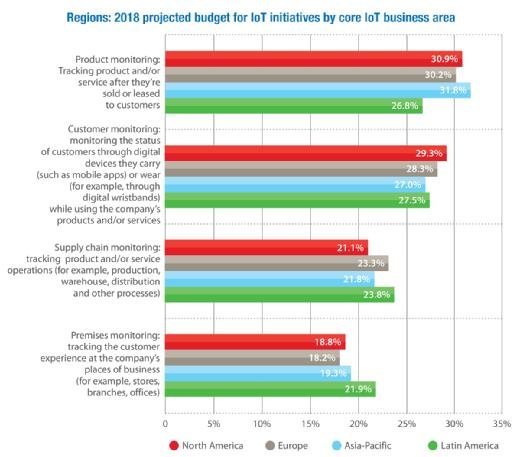
iconimage - Fotolia
Investment in the internet of things boosts revenue for manufacturers
A TCS report reveals executives plan to increase spending on IoT initiatives to boost business
A study by Tata Consulting Services (TCS) has found that 79% of organisations are already using internet-connected technologies to track their customers, products, the premises in which they do business with customers or their supply chains.
The survey of 3,764 executives found that businesses plan to invest $86m, or 0.4% of revenue, on projects around the internet of things (IoT). The executives said their IoT budgets would rise by 20% to $103m by 2018.
TCS’s Internet of things: The reimagination force report found that businesses that have invested in the IoT have seen an average revenue increase of 15.6%.
The biggest successes in IoT driving revenue were seen in manufacturing, TCS found, with companies in the manufacturing sector reporting an average 28.5% revenue increase from the IoT.
Next was financial services with a 17.7% increase in revenues, followed by media and entertainment at 17.4%. The car industry had the lowest revenue gain, with a 9.9% increase.
According to TCS, British firms were making the biggest increases when it came to IoT spend, with UK respondents reporting they plan to increase IoT spending by 38% over the next three years.
Read more about the internet of things (IoT)
- The internet of things needs to provide better security, according to Beecham Research.
- IDC warns the IoT could fail to reach its full potential unless datacentre capacity issues are addressed.
- Gemalto’s M2M unit is developing an ambitious project to use the IoT to save the honeybee from extinction.
UK companies reported a 13.9% revenue increase in 2014 over 2013 as a result of IoT investment, with leading businesses reporting increases of up to 64%.
The report stated that 47% of companies leverage IoT technologies in the form of mobile apps to track customers.
Smartphones are driving customer connections to the internet of things. With close to two billion smartphone users globally, and with smartphones overtaking PCs and tablets as consumers’ connected device of choice, companies see opportunities they didn’t have 20 years ago to track customers through the mobile devices they use, according to TCS.

As an example, TCS highlighted how banks that provide car loans were using GPS devices installed in cars to locate and repossess vehicles if customers missed a payment, with some lenders installing technology that can prevent the car from starting.
Other examples include Coca-Cola Enterprises, which has tested Apple’s iBeacon to send a marketing message to a consumer’s iPhone when the user is near a relevant location inside a store, and McDonalds, which has analysed footage from video cameras along with point-of-sale data and audio recordings to assess the performance of drive-through restaurants.










